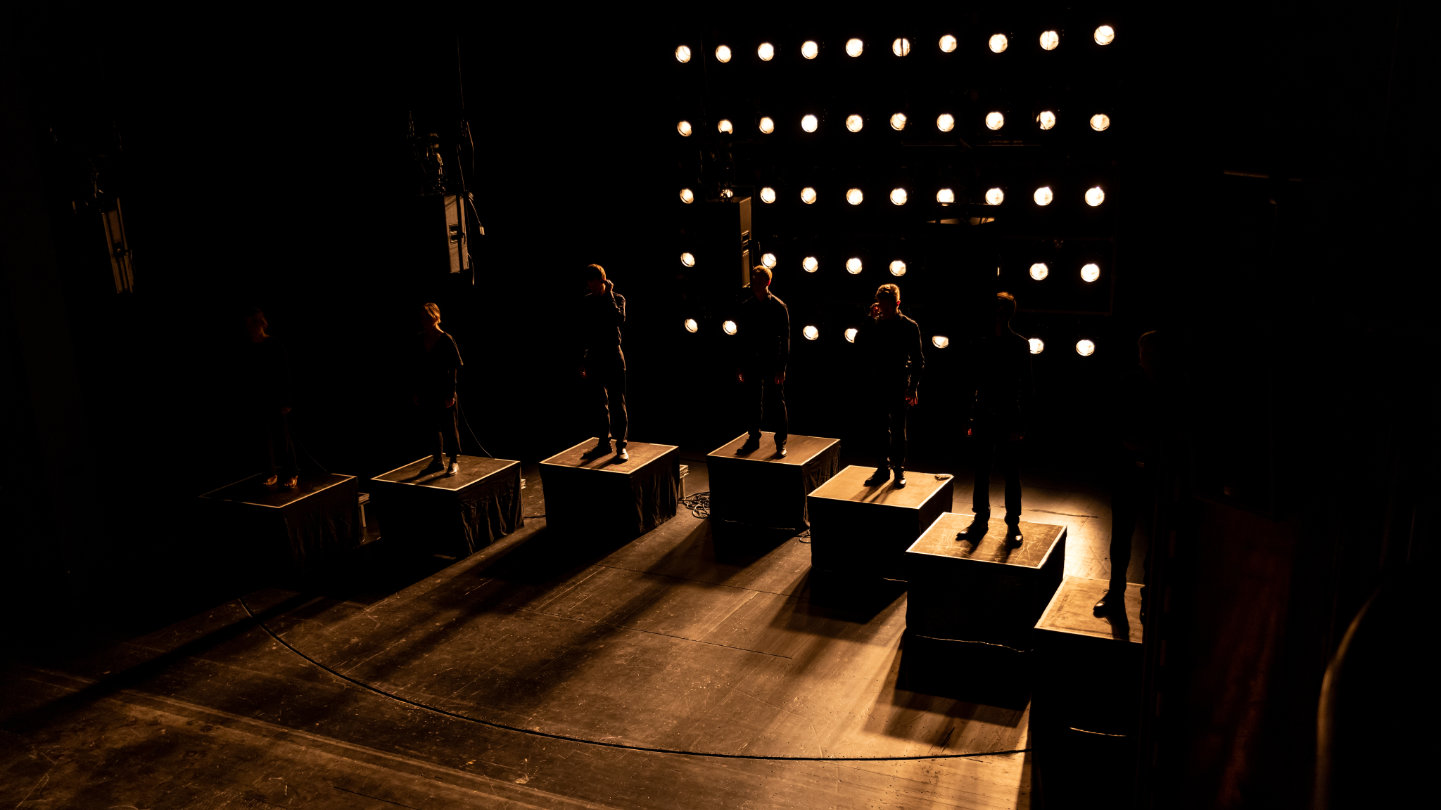Amproprification VI: Max Marcoll and Tonnta
25 April

“Amproprification”, a portmanteau of the words “appropriation” and “amplification”, is a series of works for performers and automated amplification. In short, all Amproprifications are elaborate amplification layers for preexisting pieces by other composers. For each Amproprification, one specific score is being performed as intended by the original’s composer, except that it is picked up by microphones and played back through loudspeakers. It is this point, the amplification between the microphone and the speaker, that is subject to the composition.
The electronic extension is comprised exclusively of a layer of amplification, which is meticulously and thoroughly designed to be superimposed onto the original work. The possibilities of interference span a large variety of movements, from almost imperceptibly slow fader movements to extremely rapid chopping. In a figure of speech, all Amproprifications are “silent” pieces. They themselves do not contain or produce any sound. They do, however, constitute filters, readings, processings of the original pieces.
The originals are being superimposed with additional layers of musical content. In this sense the Amproprifications could be considered “counter compositions”. They can temporarily serve as interpretations, comments, support, as a means of magnifying aspects not necessarily playing significant roles in the originals, and they can transform them into something new. The selection of a piece for an Amproprification requires love and respect for the original, otherwise the process would be utterly pointless. The Amproprifications are not about destruction. And yet, by “chopping them up”, the respective original’s context is being broken to allow for the emergence of the new.
The concept for the development of the amplification layer is very different for each piece. It is always built on aspects of the respective original’s structure and content. Hence, the originals are being superimposed with layers that are external, yet based on the works themselves. The general aim of the series is to excavate musical realities, hidden within the originals, to address the historic distance we might have towards them, to transform the old acoustic pieces into new electroacoustic ones and the paradox of listening to something that is both well known and entirely new at the same time.
Press Quotes
“It is not about the material, but about the access to it. In the «Amproprifications» the composer and performer Maximilian Marcoll uses existing works from very different eras and has them recorded. With the help of his own software, he applies composed volume controls to the pieces found, thus directing the focus and transforming the pieces into something else.” (Neue Zeitschrift für Musik)
“In his Amproprifications, Marcoll invented a very specific way of making previous pieces into his material, a method that paradoxically leaves them completely intact and radically changes them at the same time: his intervention is restricted to a composed amplification of the individual voices or parts.” (Christian Grüny)
Credits
PROGRAMME
Frank Corcoran, Quasi Una Missa (1999) for recorded voices 20′ [Interval] Maximilian Marcoll, Amproprification #6: Missa Papae Marcelli, Giovanni Pierluigi da Palestrina (2016/2020), 35′
PERFORMERS
Tonnta
Production Credits
Festival Director: Fergal Dowling
Technical Supervision: Studio4
Audio production: Fergal McKeown
Lighting: Aidan Whelan
Press: Conleth Teevan
Production Assistant: Maeve Kelly
Social Media Manager: Josh Gandharva
Biographies
Led by vocalist and composer Robbie Blake, Tonnta champions the interdisciplinary creation and performance of music. Tonnta’s sound is vibrant and dynamic – the work references the worlds of live art, contemporary dance and theatre while being rooted in sound. Tonnta believes in creating experiences for all, and where possible ensures all events are accessible to those with reduced mobility, wheelchair users and are delivered in a relaxed-performance style. If you have any concerns about upcoming events, please get in touch with us to discuss your needs. Tonnta prioritises performances and events that are invigorating, boundary-pushing and accessible for all. tonnta.ie
Maximilian Marcoll studied percussion, instrumental and electronic composition in Lübeck and Essen, Germany. His work centres on media-reflective aspects of music, as well as the social and political potential of music and sound. His most recent works include pieces of the series ‘NUT | LAC’, which deal with the paradox of the simultaneity of interruption and flow in the form of slowly progressing pulse shifts; the series the ‘Amproprifications’ series, in which he superimposes layers of amplification on works by other composers; a series of monodic electronic canons and “Control Issues”, a series of works for control devices with motorised faders. Since 2021, he has been teaching as Professor of Electroacoustic Composition and Sound Art at the the University of Music and the Bauhaus University Weimar. He lives in Weimar and Berlin. www.marcoll.de
Frank Corcoran was born in Tipperary and studied in Dublin, Maynooth, Rome and Berlin (with Boris Blacher). He was the first Irish composer to have his ‘Symphony No. 1’ (1980) premiered in Vienna. He was a music inspector for the Department of Education in Ireland from 1971 to 1979. He was awarded a composer fellowship by the Berlin Künstlerprogramm in 1980, a guest professorship in West Berlin in 1981, and was professor of music in Stuttgart in 1982. Since 1983 he has been professor of composition and theory in the Staatliche Hochschule für Musik und darstellende Kunst, Hamburg. During 1989-90 he was visiting professor and Fulbright Scholar at the University of Wisconsin-Milwaukee and he has been a guest lecturer at Princeton University, CalArts, Harvard University, Boston College, New York University and Indiana University. www.frankcorcoran.com
About Music Current Festival
Music Current is Ireland’s most ambitious, adventurous and challenging music festival, presenting music that is new to Dublin audiences; multimedia music performances, theatrical performances and audio visual performances; music that has to be experienced.
25 April
8pm
€20/€16
The Space Upstairs
75 min including interval


